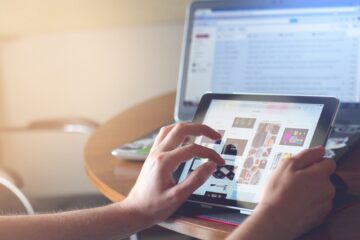For years, social media has been making it possible for users to discuss different issues, organize protests, and hold leaders accountable when and where possible. Back in 2011, when social media platforms played a crucial role in the Arab Spring in countries like Egypt and Tunisia, it was, back then, hailed as a technology for liberation. Ten years later, and with all the complications that global politics are going through, the headlines are taking a different turn with concerns that social media is a threat to nations and to democracies.
We have seen multiple incidents where social media websites are used as a platform for defamation, fake news, misinformation, and political polarization. This raises an important question: what effect does social media have on democracy?
With each passing year, this issue becomes more pressing. Social media was initially designed to connect people — and it has indeed excelled at that. But as unprecedented numbers of people and parties channel their political idea through this medium, it is being used in unpredicted ways with political repercussions on many democracies.
A report from Chatham House states that “online political campaigning techniques are distorting our democratic political processes.” Techniques include the use of social media to spread fake news, the use of data collected through social media for surveillance, the use of bots or semi-automated accounts, and the use of fake accounts. “Such techniques,” the report says, “have outpaced regulatory initiatives”.
Moreover, a research by the Oxford Internet Institute has found that social media manipulation is increasing, with higher numbers of governments and political parties using automation, social media algorithms, and big data to manipulate public opinion.
“The use of computational propaganda to shape public attitudes via social media has become mainstream, extending far beyond the actions of a few bad actors,” the research adds. “In an information environment characterized by high volumes of information and limited levels of user attention and trust, the tools and techniques of computational propaganda are becoming a common – and arguably essential – part of digital campaigning and public diplomacy.”
According to the same research, propaganda tools were used by “amassing fake followers or spreading manipulated media to garner voter support”, in 45 democracies.
Many reports claim that Facebook and Twitter are the two main platforms for social media manipulation and disinformation. Twitter and Facebook have both already declared that they would ban political advertisements and monitor political activities. It is a step that many acclaimed as progress in the fight against disinformation and election interference.
More recently, on the race to the White House, it seemed that social media platforms have learned a lot from the 2016 U.S. elections as the country faced alleged foreign interference. Facebook, for instance, has developed multiple tools to secure the website from “interference, misinformation and voter interference” and to “improve transparency and privacy, and empower people to use their voices by voting”.
The changes that Facebook applied also included adding “friction”, which means adding more steps before a user can create posts or ads. The company also worked on making election-related misinformation content less visible. These changes are considered some of the most significant steps taken by Facebook, which has always tried to make information sharing as easy and accessible as possible.
Another largely used platform is Twitter, which has also applied elections-related changes to slow down the flow of information. Twitter, which Trump uses as a megaphone, had labeled many of his tweets with warnings that said he is making “misleading claims about the electoral process”
What’s our role as social media users?
By being aware of what we are publishing and who we are following on social media, we can all take part in creating a social media scene that further strengthens and promotes democracies. The news and political opinions you share/publish, the people you follow, the pages you consider as reliable all have political effects on us and the people following us. With all the tools available for fact-checking, we can all close the gates of computational propaganda.
Thumbnail Photo by Tracy Le Blanc from Pexels



